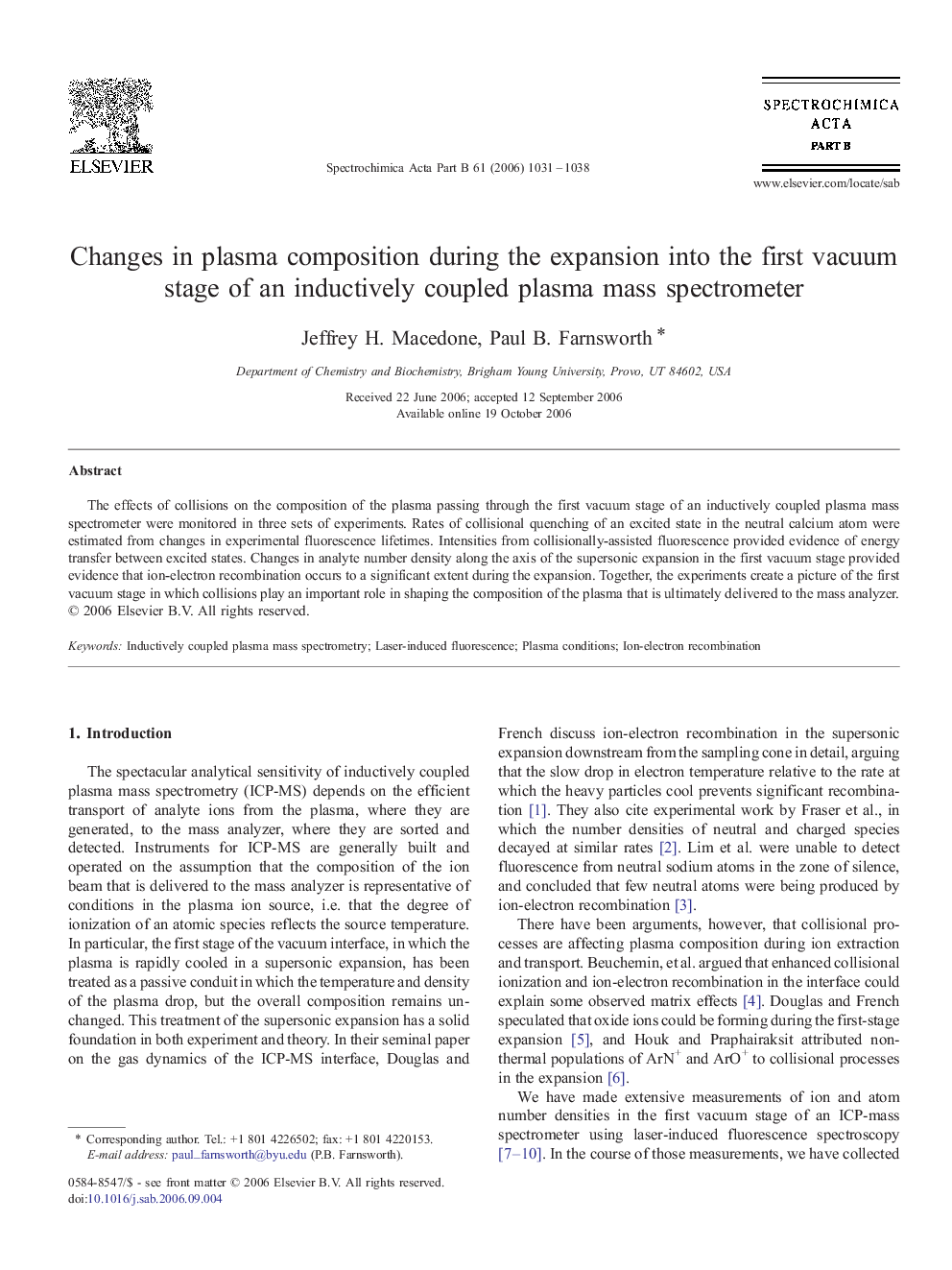| Article ID | Journal | Published Year | Pages | File Type |
|---|---|---|---|---|
| 1241458 | Spectrochimica Acta Part B: Atomic Spectroscopy | 2006 | 8 Pages |
The effects of collisions on the composition of the plasma passing through the first vacuum stage of an inductively coupled plasma mass spectrometer were monitored in three sets of experiments. Rates of collisional quenching of an excited state in the neutral calcium atom were estimated from changes in experimental fluorescence lifetimes. Intensities from collisionally-assisted fluorescence provided evidence of energy transfer between excited states. Changes in analyte number density along the axis of the supersonic expansion in the first vacuum stage provided evidence that ion-electron recombination occurs to a significant extent during the expansion. Together, the experiments create a picture of the first vacuum stage in which collisions play an important role in shaping the composition of the plasma that is ultimately delivered to the mass analyzer.
